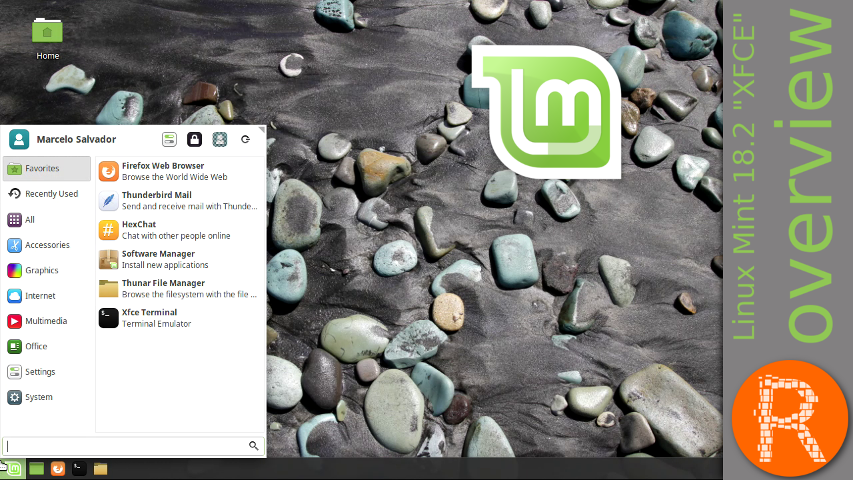Basic command prompt commands for beginners Linux, Unix and BSD

In this video I am going to show some basic command prompt commands for Linux, BSD and Unix this is an Introduction To Linux/Unix/BSD Commands for Beginners.
Linux
Linux was originally developed as a free operating system for Intel x86-based personal computers. It has since been ported to more computer hardware platforms than any other operating system. It is a leading operating system on servers and other big iron systems such as mainframe computers and supercomputers.
BSD
Berkeley Software Distribution (BSD, sometimes called Berkeley Unix) is a Unix operating system derivative developed and distributed by the Computer Systems Research Group (CSRG) of the University of California, Berkeley, from 1977 to 1995. Today the term "BSD" is often used non-specifically to refer to any of the BSD descendants which together form a branch of the family of Unix-like operating systems. Operating systems derived from the original BSD code remain actively developed and widely used.
Historically, BSD has been considered a branch of UNIX—"BSD UNIX", because it shared the initial codebase and design with the original AT&T UNIX operating system. In the 1980s, BSD was widely adopted by vendors of workstation-class systems in the form of proprietary UNIX variants such as DEC ULTRIX and Sun Microsystems SunOS. This can be attributed to the ease with which it could be licensed, and the familiarity the founders of many technology companies of the time had with it.
Although these proprietary BSD derivatives were largely superseded by the UNIX System V Release 4 and OSF/1 systems in the 1990s (both of which incorporated BSD code and are the basis of other modern Unix systems), later BSD releases provided a basis for several open source development projects, e.g. FreeBSD, NetBSD, OpenBSD or DragonFly BSD, that are ongoing. These, in turn, have been incorporated in whole or in part in modern proprietary operating systems, e.g. the TCP/IP (IPv4 only) networking code in Microsoft Windows and a part of the foundation of Apple's OS X.
Unix
Unix (officially trademarked as UNIX) is a multitasking, multi-user computer operating system that exists in many variants. The original Unix was developed at AT&T's Bell Labs research center by Ken Thompson, Dennis Ritchie, and others. From the power user's or programmer's perspective, Unix systems are characterized by a modular design that is sometimes called the Unix philosophy, meaning the OS provides a set of simple tools that each perform a limited, well-defined function, with a unified filesystem as the main means of communication and a shell scripting and command language to combine the tools to perform complex workflows.
The C programming language was designed by Dennis Ritchie as a systems programming language for Unix,allowing for portability beyond the initial PDP-11 development platform and the use of Unix on a plethora of computing platforms.
During the late 1970s and 1980s, Unix developed into a standard operating system for academia. AT&T tried to commercialize it by licensing the OS to third-party vendors, leading to a variety of both academic (e.g., BSD) and commercial variants of Unix (such as Xenix) and eventually to the "Unix wars" between groups of vendors. AT&T finally sold its rights in Unix to Novell in the early 1990s.
The Open Group, an industry standards consortium, now owns the UNIX trademark and allows its use for certified operating systems compliant with its standard, the Single UNIX Specification. Other operating systems that emulate Unix to some extent may be called Unix-like, although the Open Group disapproves of this term.The term Unix is also often used informally to denote any operating system that closely resembles the trademarked system. The most common version of Unix (bearing certification) is Apple's OS X, while Linux is the most popular non-certified workalike.
Other posts:
Linux Mint 18.2 "XFCE" overview | Light, simple, efficient.

How to Install LAMP Stack (Linux, Apache, MariaDB, PHP) on Red Hat Enterprise Linux 7.4 + webmin

LuninuxOS 17.04 overview | Imagination, Inspiration, Improvement...

Thank you and please vote, Resteem, follow @ribalinux \(^ω^\)
Interested post for newbie Linux user. I am a new user for linux. Now I am using the Linux mint as my second OS on my laptop. But I do not now much the command to operate it. Linux is safer than windows, but for new user it is dificult to understand. Your post is very useable. Please visit my blog @darklog
This comment has received a 0.63 % upvote from @drotto thanks to: @banjo.
Congratulations! This post has been upvoted from the communal account, @minnowsupport, by ribalinux from the Minnow Support Project. It's a witness project run by aggroed, ausbitbank, teamsteem, theprophet0, someguy123, neoxian, followbtcnews/crimsonclad, and netuoso. The goal is to help Steemit grow by supporting Minnows and creating a social network. Please find us in the Peace, Abundance, and Liberty Network (PALnet) Discord Channel. It's a completely public and open space to all members of the Steemit community who voluntarily choose to be there.
This post has received a 1.56 % upvote from @drotto thanks to: @ribalinux.